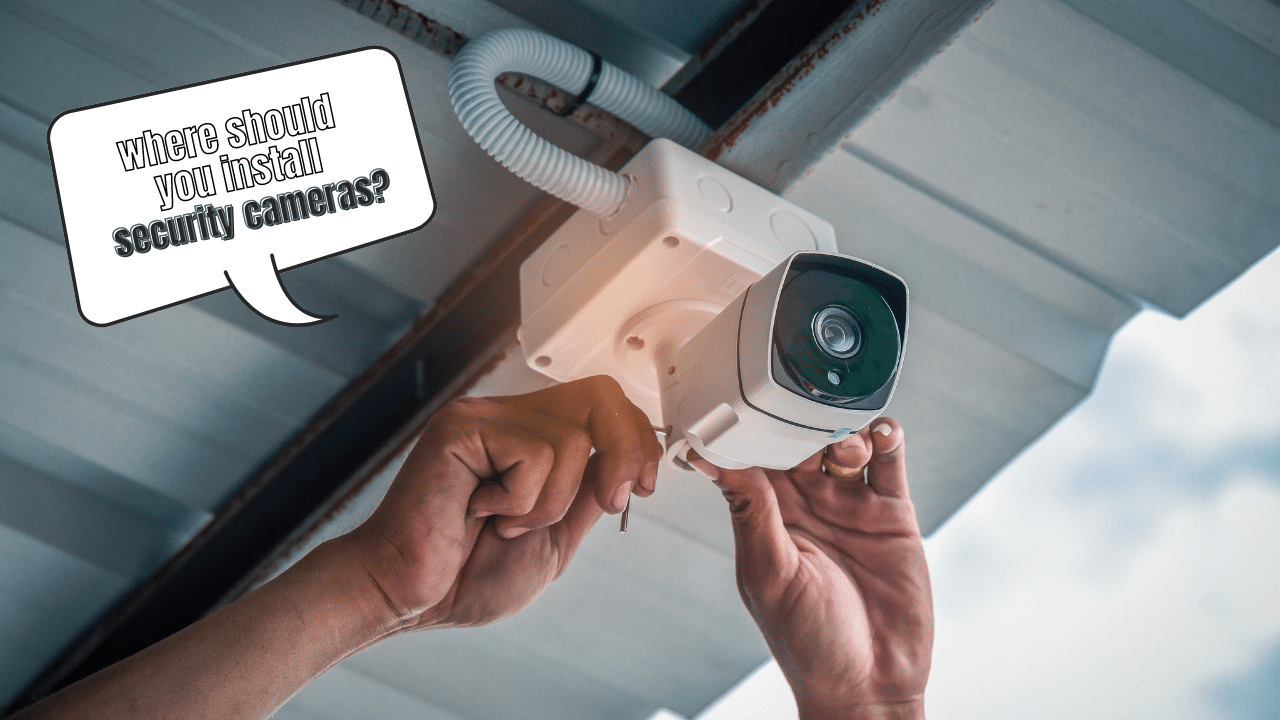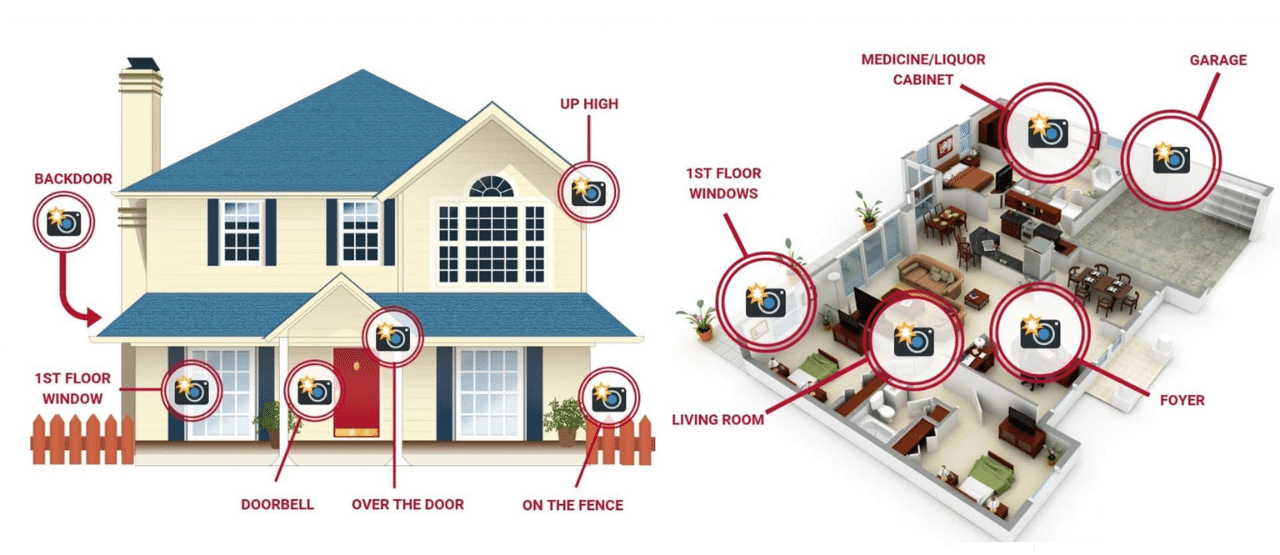The placement of your security system's cameras and sensors determines its effectiveness. You can better safeguard your home and property by considering the best location for security cameras.
One camera being installed is a mistake that some individuals make. Most cameras only have a limited amount of rotation and zoom... as such, a good rule of thumb would be installing home security cameras in various locations all over your house– just like door and window sensors. Perhaps the most obvious entry points should include security cameras: ground-floor windows and entrances, particularly the main entrance and side or back doors.
Let's discuss the best camera locations for home security so you know where to install your following high-tech cameras. (Related: Home Security: Best Tips to Keep Your New Home Safe, Secure, and Sound)
The Best Places to Install Your Security Cameras

Instead of concentrating on how many security cameras to install, think about where and around your home will offer the most expansive viewing angles. While every property is built differently, most of them have busy areas that are more prone to burglaries, as many of these areas as cameras can cover you.
Due to their solitude, off-street windows don't face a street and could be more vulnerable to break-ins. Use indoor cameras that face the windows in question, or install external cameras above them.
Best Locations for Home Security Cameras
Though it is essential to think about the weak spots in your own home, there are some locations that criminals frequently target.
Common security flaws include:
Entrance
Most break-ins use this entrance since it is the most visible way for crooks to get inside your house. Consider placing the home security device at the second-story level or enclosing it in a wire cage to prevent anything from being thrown at the delicate CCTV cameras.
Exterior Windows
Since there are no onlookers from the public, windows that do not face a busy street or road may appeal more to thieves. In addition to cameras, always remember to pay attention to your windows and keep them closed and locked anytime you leave the house.
Side and Back Doors
Any entrance to your property is a possible way for a criminal to enter your personal space. Since doors are your most vulnerable areas, ensure that some cameras are pointed at them. To avoid tampering, follow the same safety procedures mentioned in the previous step. Patio and French doors are particularly vulnerable to break-ins, so strengthen them with thick glass and a strategically placed CCTV camera.
Backyard
Whether it's a shed stuffed to the gills with expensive gardening equipment or a garden crammed with playthings for the kids, our gardens frequently include many valuable objects that make them attractive to thieves. Have a few well-placed cameras and some security lights to keep this area safe and secure. These components can serve as strong deterrents to criminals, making them hesitant to enter your garden.
Indoors
There is a widespread notion that CCTV cameras are only helpful outside. Installing a camera inside your home, with the lens focused on the windows or doors, can capture a burglar entering your residence. You'll also be provided a complete view of their face for more straightforward identification.
The only drawback to installing cameras indoors is that a burglar must first enter your house to see them, so they are less visually deterrent. Ask a security expert for additional guidance on where to install home security cameras, and they will be able to provide some insight.
Garage
Although some homeowners might not think to keep an eye on their garage, criminals frequently use this entrance. Therefore, it's crucial to maintain your garage secure whether or not it houses expensive equipment.
A camera pointing toward the garage or driveway is ideal for seeing indications of suspicious behavior. Alternatively, you might want to position the camera inside the garage and aim it at a position that will allow the light from the open door to illuminate the dim inside.
With that being said, let's discuss some areas where you should avoid installing security cameras:
Expert-Backed Security Camera Placement Tips
Here are some practical tips to keep in mind regarding the best location for home security cameras.
Frequently Asked Questions (FAQs)
How can I layout an outdoor security camera?
Homes and businesses have different scopes in the layout process for outdoor security cameras. Typically, cameras should be installed in average residences no higher than 12 feet from the ground to be out of reach and at the proper distance to capture the most transparent camera image possible.
Outdoor security cameras typically have a higher vantage point and can capture more information at a distance. While each camera's specs are different, surveillance with zooming capabilities may be set higher. However, older zooming cameras and cameras operating at night perform worse at greater distances. The size of the camera lens should explicitly determine placement. The larger the lens, the wider the area the outdoor security camera can cover.
Should my home security cameras be visible?
There isn't much hiding space for outdoor security cameras, which are often bullet cameras. Security cameras, however, usually discourage crimes like burglary and the destruction of private property.
Should security cameras be above or below lights?
Light fixtures shouldn't obstruct surveillance cameras in general or outdoor security cameras in particular. The light must be positioned above the camera if one is placed close to the other. A camera should never be directed straight at the light since the light will neutralize the camera.

